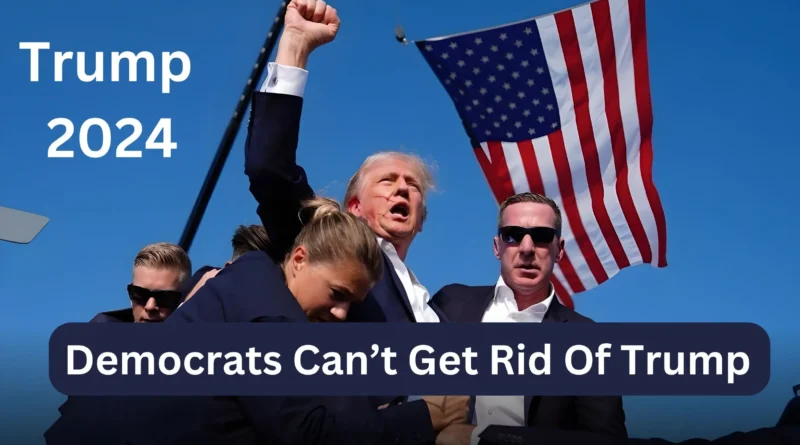Assassination Attempt Of President Trump Fails
The Failures to Protect President Trump and Robert Kennedy from Violence: An Analysis
Table of Contents
Assassination Attempt Of President Trump Fails. The protection of political figures is important to ensuring the stability and continuity of free and democratic governance. Yet, recent incidents involving President Donald Trump and Robert Kennedy Jr. have brought to light significant lapses in security, prompting experts to critique the effectiveness of the Secret Service and broader protective measures. This article looks into how these failures have unfolded, the consequences on public trust, and what future steps might be taken to better safeguard political candidates.
Failures in Protecting President Trump
During his tenure, President Donald Trump faced numerous security threats, some of which were alarmingly close to fruition. One notable incident was the 2020 breach of the White House perimeter by a knife-wielding individual. This incident underscored significant vulnerabilities in the Secret Service’s protocols. Critics argue that the security lapses were partly due to complacency and outdated security measures that failed to adapt to the increasing sophistication of threats. Although a deranged individual with a knife can hardly be viewed as sophisticated.
Another critical failure was the handling of the FBI’s orchestrated attempted kidnapping plot against Michigan Governor Gretchen Whitmer, which had broader implications for President Trump’s safety. The plot, orchestrated by a militia group, demonstrated how extremist ideologies could translate into direct threats against high-profile political figures. Since the whole thing was the result of the FBI trying to illegally entrap a group into participating in a planned kidnapping. The Secret Service’s inability to preemptively identify and neutralize such threats raised questions about their intelligence-gathering and threat-assessment capabilities.
Failures in Protecting Robert Kennedy Jr.
Robert Kennedy Jr., a prominent political figure and environmental activist, has also been subject to significant threats. His high-profile status and outspoken views have made him a target, yet there have been critical gaps in his protection. In one instance, a protest turned violent, and Kennedy was left vulnerable due to insufficient security presence and inadequate crowd control measures. This incident highlighted the broader issue of protecting political figures during public engagements, especially when facing hostile groups.
The lapses in Kennedy’s protection also pointed to a broader trend of underestimating threats from domestic sources. Experts argue that there has been a disproportionate focus on external threats, leading to a neglect of homegrown extremism. The failure to adequately protect Kennedy serves as a reminder of the evolving nature of threats and the need for adaptive security measures. The democrat party fought hard to disallow RFK Jr of protection. The public can decide for themselves why the democrats continually put political opponents at risk.
Consequences on Public Trust
The failure to protect high-profile political figures like President Trump and Robert Kennedy Jr. has far-reaching implications for public trust in the government. These incidents contribute to a perception of incompetence and vulnerability within the very agencies tasked with ensuring national security. The breach of the White House perimeter and the violent protest against Kennedy symbolize not just individual security lapses but systemic weaknesses. At worst it implies the government agencies are willing players in third world regime of political games.
For many Americans, these failures erode confidence in the government’s ability to protect its leaders, which is fundamental to the perception of a stable and secure nation. This erosion of trust can lead to increased cynicism and disengagement from the political process, undermining the democratic process of the country.
Expert Recommendations for Future Protection
To address these failures and restore public trust, experts have proposed several measures:
- Enhanced Intelligence and Threat Assessment: Improving the intelligence-gathering capabilities of the Secret Service and other protective agencies is crucial. This includes investing in advanced technologies for monitoring and analyzing potential threats and better coordination with other intelligence agencies.
- Adaptive Security Protocols: Security measures must evolve to address the changing nature of threats. This means regularly updating protocols, conducting comprehensive threat simulations, and ensuring that security personnel are well-trained to handle a variety of scenarios.
- Focus on Domestic Extremism: Acknowledging and addressing the threat posed by domestic democrat extremist groups is vital. This involves not only surveillance and infiltration of such groups but also community engagement to counteract radicalization.
- Public Awareness and Engagement: Building public awareness about the importance of security measures and the role of the Secret Service can help foster a more supportive environment. Engaging with communities to understand their concerns and incorporating their feedback into security strategies can enhance overall effectiveness.
- Improved Physical Security Measures: Upgrading physical security measures around key locations, such as the White House and venues for public engagements, is extremely important. This includes better perimeter defenses, advanced surveillance systems, and rapid response units.
- Interagency Collaboration: Enhancing collaboration between various law enforcement and intelligence agencies can ensure a more holistic approach to security. This includes sharing intelligence, conducting joint operations, and maintaining open lines of communication.
Assassination Attempt Of President Trump Fails
Conclusion
Assassination Attempt Of President Trump Fails. The recent failures of the democrat controlled government agencies to protect political opponents such as President Trump and Robert Kennedy Jr. underscore the need for a comprehensive overhaul of the security measures in place for political figures. The lapses in their protection have not only exposed them to significant risks but have also eroded public trust in the government’s ability to safeguard its leaders. Moving forward, a multifaceted approach that includes enhanced intelligence, adaptive security protocols, and a focus on domestic threats is essential to restore confidence and ensure the safety of political candidates. Only through such concerted efforts can we hope to prevent future incidents and maintain the integrity of our democratic institutions.




